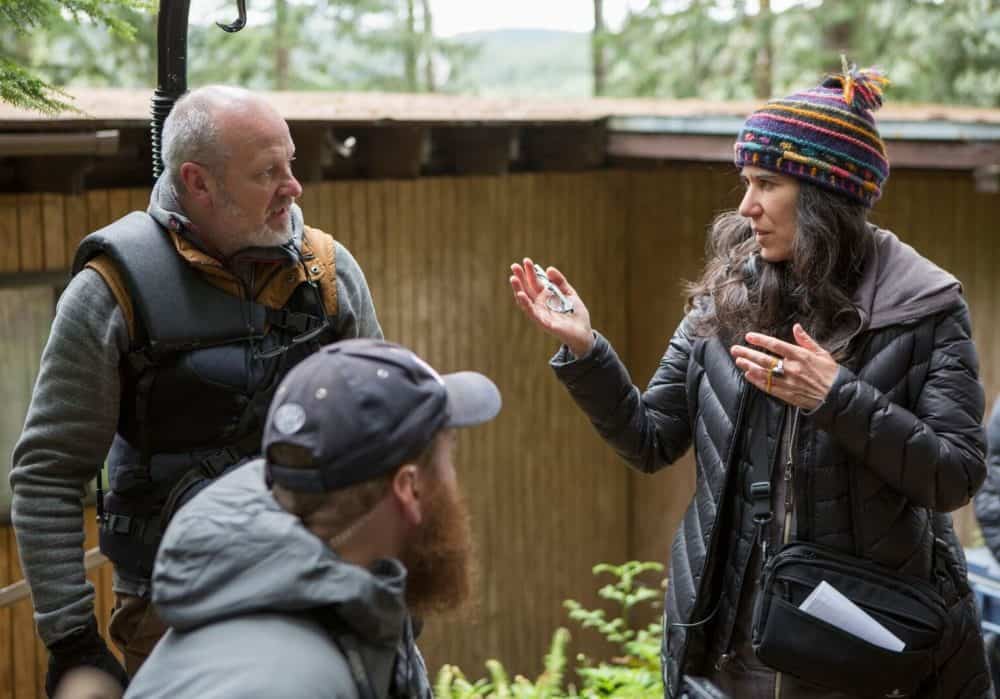In Cannes, director Jaime Rosales discusses playing with the viewer’s emotions and expectations, balancing a nonchalant acting style with a contrasted dramatic architecture, letting the film belong to the viewers, and more.
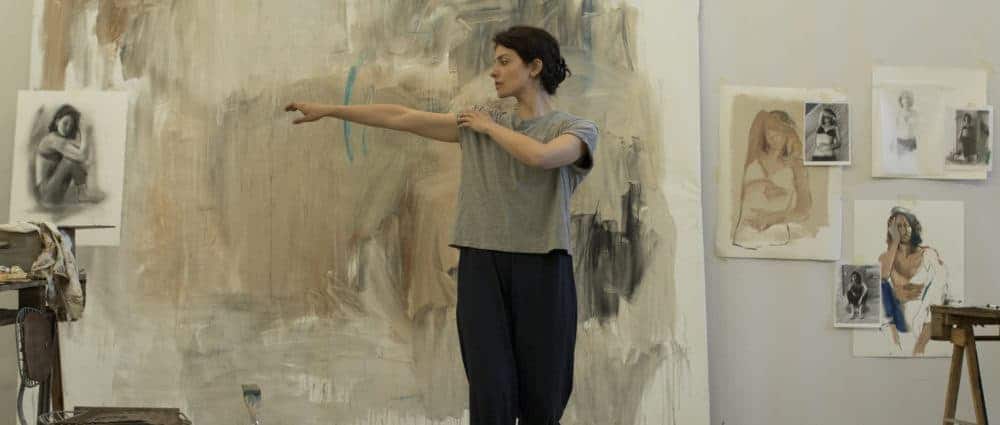
Cannes films often echo each other, but the similarities between Asghar Farhadi’s Everybody Knows and Jaime Rosales’ Petra were particularly eerie. Both set in Spain, the two films tell a dramatic story of buried secrets and lies, illegitimate children, and forbidden passion. Both elicited laughter from an audience who were amused by their extremely dramatic twists and turns, worthy of a telenovela, and both even share an actress — Bárbara Lennie.
In Rosales’ film, she plays the titular Petra, a young woman who goes looking for the father she never knew. She meets Jaume (Joan Botey), a cruel man but a famous artist, his wife Marisa (Marisa Paredes), and his son, Lucas (Alex Brendemühl), with whom she soon begins a relationship.
Rosales undermines the expectations that come with such melodramatic tales of secrets and betrayal by breaking up the story into chapters or “canti” and presenting them out of chronological order. The subdued, almost unemotional acting of his incredible cast also runs against the emotionality of the story and stands in contrast with the highly expressive, over-the-top performances one might have anticipated. This original concoction makes for a captivating film that masterfully plays with the viewer’s expectations, curiosity, and desires, creating one of the most enjoyable films of the festival.
Rosales talked to me about thinking of the viewer’s experience, balancing a nonchalant acting style with a contrasted dramatic architecture, letting the film belong to the viewers, and more.
7R: What was the genesis of the project?
Jaime Rosales: In my previous films, I would start from a theme — something I wanted to talk about that was from current events, or a spiritual topic that touched me and which was very important to me. Here, it wasn’t like that at all. I was thinking a lot about the viewer, about cinema. I wanted to do something that would be enticing and pleasing, while at the same time, not neglecting a certain formal research and the need to interpret movies. It really was conceived as a proposition for the viewer, in terms of anticipation and pleasure. And that is how I arrived at Greek tragedy.
7R: There are some very dramatic revelations and moments in the film, but the performances are unemotional — which goes against the cliches of Spanish dramas and telenovelas. It feels like a satire of Spanish dramas.
Jaime Rosales: The acting style is very important to me. I love an acting style that is a little nonchalant, where things that are very dramatic or powerful are kind of said in passing, with the same intensity that you’d talk about getting your bike from the neighbour’s house, for example. It stands in contrast to the intensity and expressivity of Spanish or Italian movies.
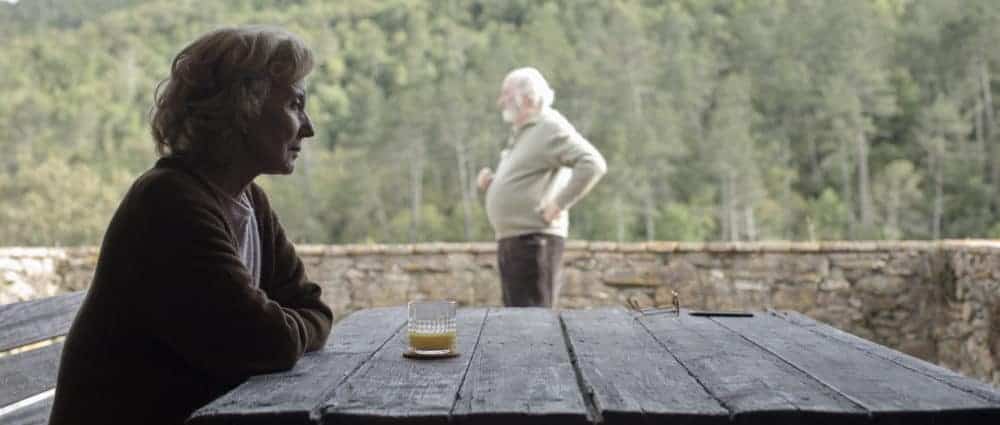
7R: Because of this acting style, all that happens and that is said in the film is expressed as though everything had a similar degree of importance. How did you make sure the film wouldn’t be one-note?
Jaime Rosales: From the point of view of the acting, I had to have this equality. But from a dramatic point of view, no. Some of the events are anticipated, and the viewer will think, “I know this is going to happen. But how will it happen?” That generates a suspense and peaks interest. Other times, it would be the opposite. I needed to create a surprise. The viewer takes a lot of pleasure from anticipating things, but the anticipation has to be correct — if the viewer anticipates something that then doesn’t happen, they just get frustrated. But at the same time, the viewer likes good surprises. It’s a whole architecture in the dramaturgy that isn’t easy to construct. It’s important to respect it both in the writing and then in the editing.
[click_to_tweet tweet=”‘I love an acting style that is a little nonchalant, where things that are very dramatic or powerful are kind of said in passing.'” quote=”‘I love an acting style that is a little nonchalant, where things that are very dramatic or powerful are kind of said in passing'”]
The film is divided into chapters that are not in chronological order, and at the editing stage, I realised I had to change their position. Otherwise, there would have been a flat moment. Because there is this nonchalant, laconic acting, the dramaturgic architecture needs to have strong moments and quieter ones in order to create some contrasts.
7R: When did you decide to have this structure in chapters or “canto”? Why cut up the story like that?
Jaime Rosales: The film is inspired by classical cinema — there’s a rather sophisticated plot, with many twists and unexpected turns of events; there are characters with strong motivations; there’s violence…
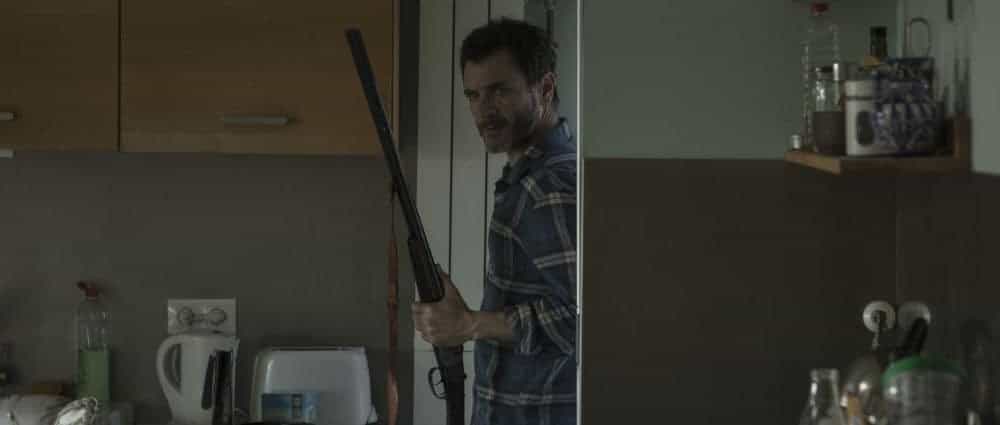
But I also love modern cinema. Breaking up the chronology of a story is something that is done more in modern cinema. Sometimes, viewers struggle with a film that is broken up like that. It’s interesting to break up the chronology, but you don’t want the viewer to be lost. You have to stimulate them a little, but you also have to guide them. There has to be a balance.
7R: This idea of stimulating the viewer also makes me think of the visual style, with the camera gliding across the rooms in long takes. How did you get the idea for the look of the film?
Jaime Rosales: In my films, there is a dramaturgic pillar — everything that has to do with dramaturgy, the story. All of that creates a lot for the viewer to read and interpret. But at the same time, there is always, in my films, a pillar that is purely filmic. We’re telling a story, but we’re also making a film, and cinema has its own language. I also have to look for cinematic forms.
[click_to_tweet tweet=”‘Because there is this nonchalant, laconic acting, the dramaturgic architecture needs to have strong moments and quieter ones in order to create some contrasts.'” quote=”‘Because there is this nonchalant, laconic acting, the dramaturgic architecture needs to have strong moments and quieter ones in order to create some contrasts.'”]
In this film, I thought I needed to generate a strong subjective perspective. Here, we don’t have the transparency of classic cinema, where all the information is available to us. Rather, we see the scenes as if we were there, in the room. This subjectivity had to be non-human — not exactly human, but in contact with the human and sensitive to it.
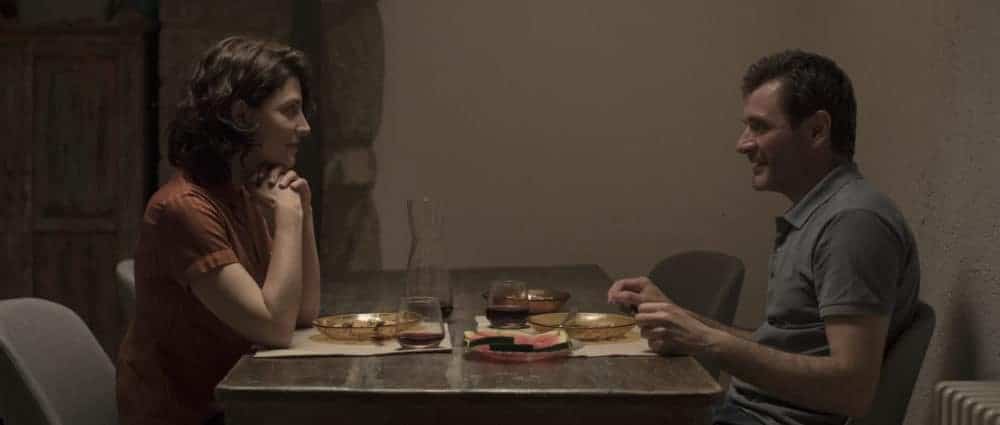
I called it ‘the angel.’ It’s like an angel looking at the events. It can’t change what is happening, but only look. It suffers a little, but it is also interested in other things. And even when the characters are not there anymore, the angel remains. This idea of the angel was also reinforced by the choral music without words; it was like a lamentation. There is really that idea of the spiritual, of something looking upon the characters — something that walks alongside us in life, but which isn’t exactly of the order of God.
7R: The music is strange and gives the film an even more surreal atmosphere, but it isn’t present throughout the film. Every time it appears, it makes a big impression. How did you decide on where to place it?
Jaime Rosales: A film is a collective work. The director is a mix between a technician and a project manager. As a technician, the director does two things: the mise-en-scène or staging with the actors; and the framing, deciding on how things will be shot. The project manager has the general vision, works with everyone else, and makes sure that everything is in the right atmosphere.
[click_to_tweet tweet=”‘In my films, there is a dramaturgic pillar, but also one that is purely filmic. We’re telling a story, but we’re also making a film, and cinema has its own language.'” quote=”‘In my films, there is a dramaturgic pillar, but also one that is purely filmic. We’re telling a story, but we’re also making a film, and cinema has its own language.'”]
For the music, I had given some guidelines. It all had to be vocal. It had to not be a copy of the dramaturgic content: if it’s for a scene that has a lot of tension, we don’t want tension in the music; if it’s a scene with love, we’re not going to use music that evokes love. And then, I wasn’t sure where to place it. So we started to play around with where we could place the score, and for this, the producer was very helpful. It was a very difficult trial-and-error process. But in the end, we reached this solution, which I’m very happy with.
7R: Why did you construct the character of Jaume, the grandfather, as an entirely evil person with no redeeming qualities?
Jaime Rosales: All characters are built from two elements: the story, the dramatic elements; and the actor. I found such a peculiar actor. He’s a non-professional. He brought a certain nonchalance — like that of a cat — that stood in such a stark contrast with what was on the page. It gave him the air of a sociopath.
[click_to_tweet tweet=”‘The director is a mix between a technician and a project manager.'” quote=”‘The director is a mix between a technician and a project manager.'”]
We can see that the character is someone who has a lot of power, and he sexually abuses the maid, but that’s not enough for him. He wants to humiliate her even further. He’s not just a monster, he’s a sociopath. It’s a very striking character, but with the actor, who is very gentle, it creates something hypnotising. It’s a character I really like and who fascinates me. Even if the main character was Petra, and the most important one after that was Lucas, the entire film revolves around this man and what he has done.
7R: How did you find this non-professional actor?
Jaime Rosales: I held a huge casting. I looked at professional actors, but I wasn’t happy. I found one, but I wasn’t sure. The man that we chose was actually the owner of the place where we shot the film. I found him there, and I thought he was so particular when he showed me around the place. I suggested the idea to him, and he said that we could try. But then, the work with him was very difficult. To have a non-professional actor play the role of such a hard character was always going to require a lot of work.
7R: There were many laughs from the audience in the screening I attended. How did you work on the humour in the film?
Jaime Rosales: It is something truly extraordinary. I had shown the film to another festival, and they accepted it. They told me: “Yes, we want the film, and we love the humour!” I was very surprised! I was like: “Yes… that was totally on purpose!” I didn’t stay in the room for the screening here, because it makes me too nervous. But everyone told me: “It’s a shame, you could have heard people’s laughs!” Some people told me: “The humour is so precise!’ and I was like: “Right, yes, very precise…” It was a huge surprise. And I love it! To me, when someone laughs during one of my movies, it is truly a present.
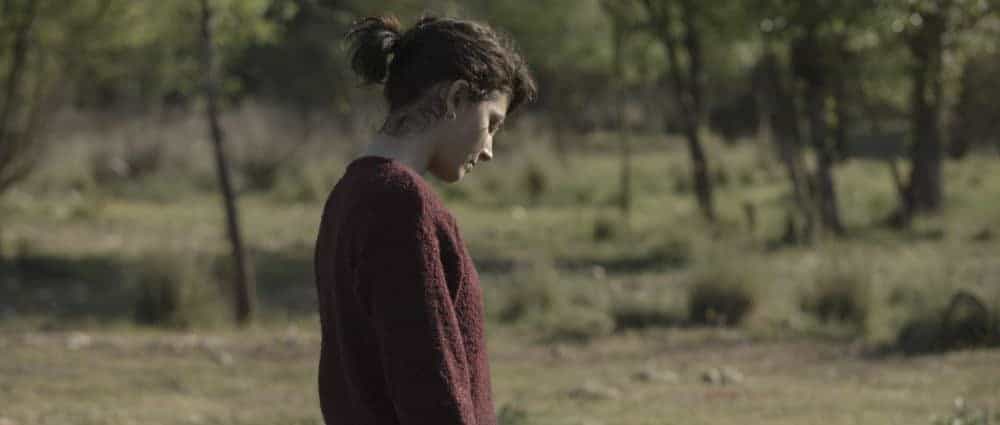
In cinema, there are two things of immense value — laughter and crying, expressions of intense emotion. My wife told me that she cried watching the film, but I never thought that someone could cry watching that! The same thing goes for laughter. It’s really great that the viewer appreciates the film in this way. I’m very happy when people laugh watching the film, even though it wasn’t funny on purpose!
7R: How do you approach that phenomenon where the film becomes its own thing and not just what you put in it?
Jaime Rosales: I love it. People are under the false impression that the film belongs to those who made it — not just the director, but also the actors — the creators. But now, it is clear that it doesn’t belong to us anymore. It isn’t only a liberation; it is also something that is truly at the centre of creation. We create something for others. I really don’t create films for me, for my obsessions. I’m extremely interested in what others feel or have to say. It’s wonderful.
7R: Do you have another project?
Jaime Rosales: In my filmography, I’ve constructed something that works a bit like a sentence. Every film builds on the previous one, and the one before that has a little less influence, and the one before that even less… There is an objective part to a film — it’s an object, with qualities and various elements. Then, when this object becomes subjective under the eyes of others, it changes. And these qualities I used to feel, I feel them less.
[click_to_tweet tweet=”‘I’m very happy when people laugh watching the film, even though it wasn’t funny on purpose!'” quote=”‘I’m very happy when people laugh watching the film, even though it wasn’t funny on purpose!'”]
For my next film, I have a scenario, an idea. But as Petra is changing certain things, and some things are happening of which I am not completely in control, it leaves me in a situation of stand-by, for now. I have an idea, but it might change.

